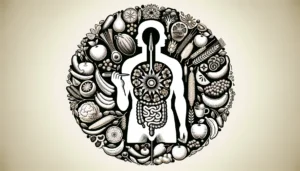The Connection Between Diet and Cardiovascular Disease
Understanding Cardiovascular Disease
Cardiovascular disease (CVD) encompasses a range of conditions affecting the heart and blood vessels, including heart attacks, stroke, hypertension, and atherosclerosis. It is one of the leading causes of morbidity and mortality globally. The impact of lifestyle factors, particularly diet, on cardiovascular health has gained significant attention in recent years as a crucial area for prevention and management.
The Role of Diet in Cardiovascular Health
Diet plays a pivotal role in influencing the risk factors associated with cardiovascular disease. These risk factors include obesity, hypertension, high cholesterol levels, and diabetes. By understanding how different nutritional components affect heart health, individuals can make informed dietary choices aimed at reducing the risk of CVD.
Key Components of a Heart-Healthy Diet
1. Unsaturated Fats
Incorporating healthy fats into the diet is essential for cardiovascular health. Unsaturated fats, found in foods like olive oil, avocados, nuts, and fatty fish, have been shown to lower bad cholesterol levels (LDL) and increase good cholesterol levels (HDL).
Polyunsaturated Fats: Omega-3 and omega-6 fatty acids are beneficial polyunsaturated fats. Omega-3s, in particular, are found in fish such as salmon and mackerel. They can reduce inflammation and lower the risk of arrhythmias.
Monounsaturated Fats: Foods such as nuts, seeds, and avocados are rich in monounsaturated fats. These fats help to improve blood cholesterol levels, provide nutrients to help develop and maintain body cells, and are generally considered heart-healthy.
2. Whole Grains
Whole grains contain essential nutrients and dietary fiber, which are linked to reduced heart disease risk. Foods such as whole grain bread, brown rice, quinoa, and oatmeal help to lower cholesterol levels, improve blood sugar control, and promote a healthy weight.
The soluble fiber in oats, barley, and legumes can help reduce LDL cholesterol. For optimal health, it is recommended that at least half of all grain consumption come from whole grains.
3. Fruits and Vegetables
Fruits and vegetables are rich in vitamins, minerals, and antioxidants, which play critical roles in heart health. They are also low in calories, making them an ideal choice for maintaining a healthy weight.
Research indicates that a diet high in fruits and vegetables may reduce the risk of cardiovascular disease. Berries, for example, are high in antioxidants, particularly flavonoids, which may help lower blood pressure and improve endothelial function.
4. Lean Proteins
Choosing lean protein sources can help minimize saturated fat intake, which is linked to elevated cholesterol levels. Lean meats, poultry, fish, and plant-based proteins such as beans, lentils, and tofu can be included in a heart-healthy diet.
Fish, especially fatty fish, is also a great source of omega-3 fatty acids. It’s widely recommended to consume at least two servings of fish per week for optimal cardiovascular benefits.
5. Low Sodium and Processed Foods
High sodium intake is linked to hypertension, a significant risk factor for cardiovascular disease. Processed foods often contain excess sodium and unhealthy fats. Reducing sodium intake can help maintain healthy blood pressure levels.
Opting for fresh, whole foods while avoiding packaged and pre-prepared meals can significantly decrease sodium consumption. Herbs and spices can provide flavor without the added sodium.
Specific Diets Addressing Cardiovascular Disease
1. Mediterranean Diet
The Mediterranean diet is renowned for its heart-healthy benefits. This dietary pattern emphasizes fruits, vegetables, whole grains, fish, nuts, and healthy oils while limiting red meat and processed foods.
Studies suggest that adherence to the Mediterranean diet can significantly lower the risk of heart disease and stroke due to its anti-inflammatory properties and beneficial fat composition.
2. DASH Diet
The Dietary Approaches to Stop Hypertension (DASH) diet focuses primarily on reducing blood pressure. It emphasizes consuming vegetables, fruits, whole grains, and lean proteins while limiting sodium, sweets, and red meats. Research indicates that the DASH diet effectively lowers blood pressure and improves cardiovascular outcomes.
3. Plant-Based Diets
Plant-based diets that focus on whole foods and minimize animal products have shown great potential in preventing cardiovascular disease. These diets tend to be rich in fiber, antioxidants, and phytonutrients, all of which contribute to improved heart health.
A well-balanced vegan or vegetarian diet that includes diverse sources of protein, whole grains, fruits, and vegetables can significantly lower CVD risk factors.
The Impact of Sugar and Processed Foods
High sugar intake is linked to obesity, insulin resistance, and higher triglyceride levels, all of which can contribute to cardiovascular disease. Sugary drinks, desserts, and many processed snacks are significant sources of added sugars that should be minimized.
Moreover, processed foods often contain trans fats, which are harmful to heart health. These fats raise levels of LDL cholesterol and lower HDL cholesterol. As a result, it is crucial to check food labels and avoid completely or reduce consumption of trans fats.
Food Choices for Optimal Cardiovascular Health
In addition to emphasizing whole and natural foods, certain specific food choices can enhance heart health:
1. Berries
Rich in antioxidants, particularly anthocyanins, berries can improve heart health by reducing inflammation and blood pressure.
2. Dark Leafy Greens
Greens such as spinach, kale, and collard greens are packed with vitamins, minerals, and antioxidants. They have been associated with improved heart health.
3. Nuts and Seeds
Nuts and seeds provide healthy fats, protein, and fiber. They can assist in lowering cholesterol levels and improving heart health.
4. Legumes
Beans, lentils, and peas are high in protein and fiber while low in fat. They can effectively replace meat sources in meals and contribute to lower cholesterol levels.
5. Whole Grains
Switching from refined grains to whole grains, such as brown rice and quinoa, can have a significant positive impact on heart health.
The Importance of Portion Control
While the quality of foods is essential, portion control is also key in maintaining a healthy weight and reducing cardiovascular disease risk. Understanding serving sizes, using smaller plates, and being mindful of hunger cues can prevent overeating.
Lifestyle Factor Integration
Alongside diet, other lifestyle factors like physical activity, smoking cessation, and alcohol moderation play significant roles in cardiovascular health. Integrating regular exercise into daily routines—aiming for at least 150 minutes of moderate-intensity activity each week—can further benefit heart health.
Monitoring and Prevention
Routine health checks and monitoring are crucial for early detection and prevention of cardiovascular disease. Blood pressure, cholesterol levels, and blood sugar levels should be regularly assessed to identify risk factors.
Conclusion on the Connection Between Diet and Cardiovascular Disease
In summary, various dietary factors significantly impact cardiovascular health, from the types of fats consumed to overall food choices. Emphasizing heart-healthy diets such as the Mediterranean and DASH diets, alongside regular monitoring and lifestyle management, can substantially reduce cardiovascular disease risk. Through informed dietary choices, individuals can take proactive steps toward enhancing their heart health and overall well-being.








